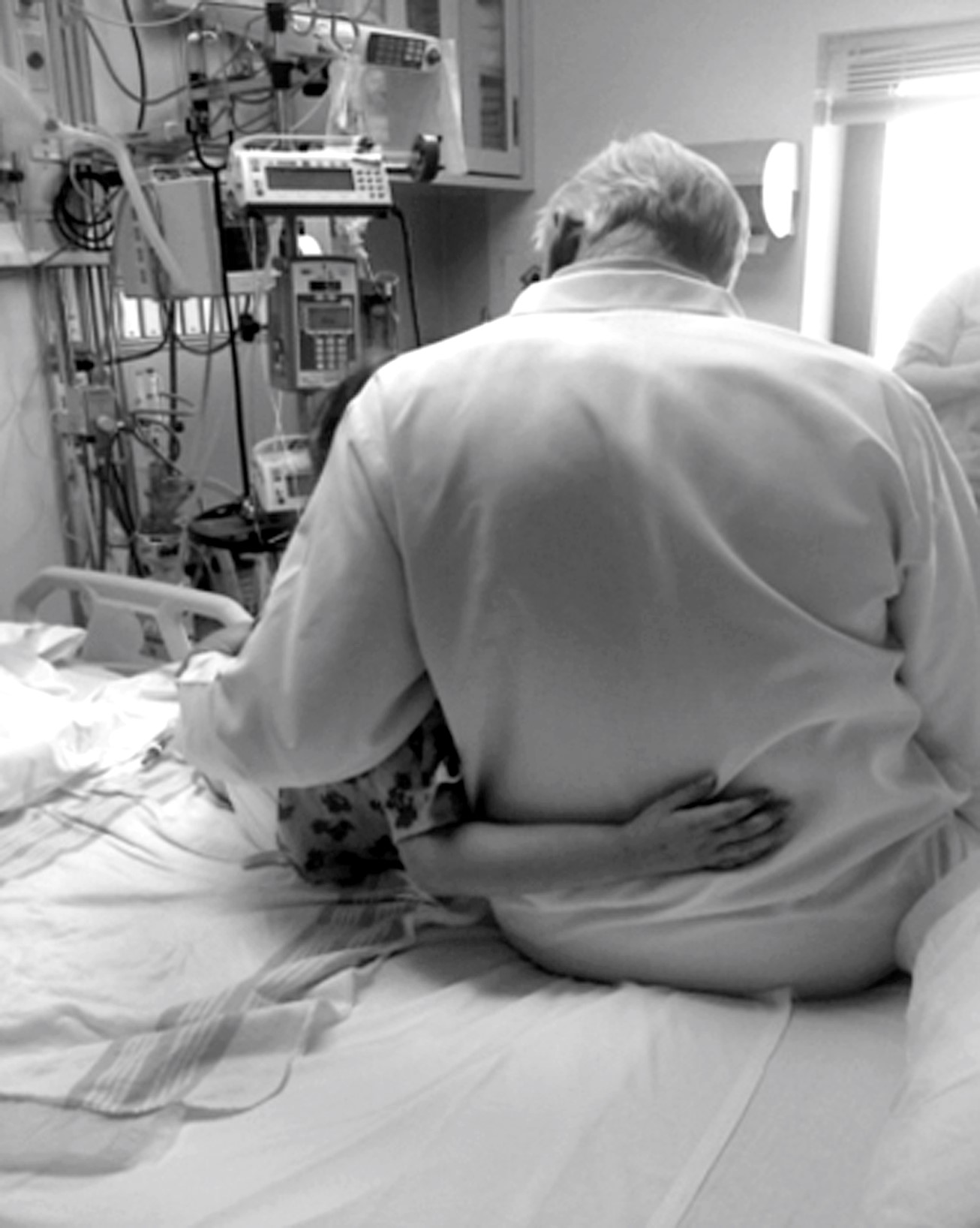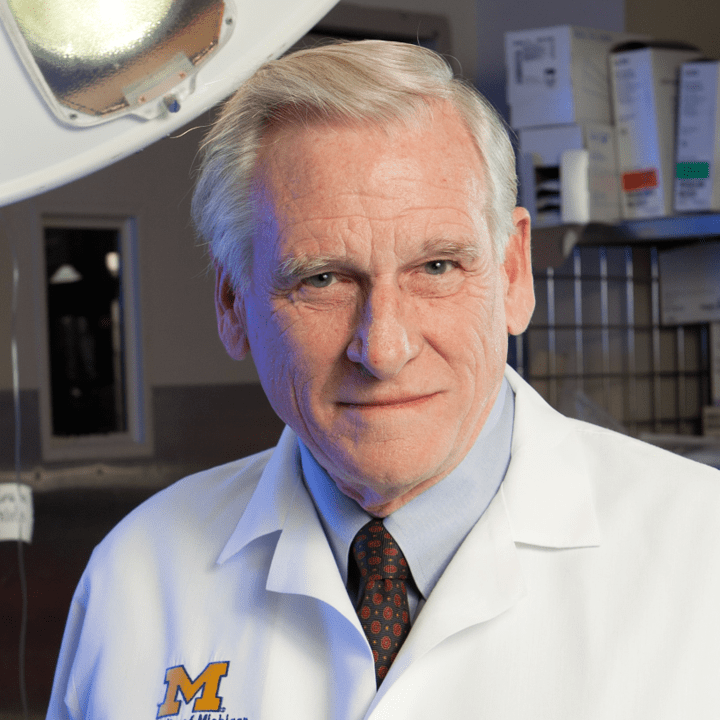IN MEMORIAM
Robert Hawes Bartlett, MD
“Without Dr. Bartlett, there is no ECMO.”1 Elizabeth Maringer, Board Member, ELSO

Dr. Bartlett saved more than 100,000 patient lives globally through his life’s work on ECMO.
He changed the world.
1939 – 2025
Robert Hawes Bartlett, MD
May 8, 1939 – October 20, 2025
Please join us to celebrate his life and his marvelous friends on January 25 - 26, 2026 in Ann Arbor, Michigan, per his wishes. This event is free and available both in person and virtual (day program on the 26th). Please RSVP here.
Known globally as the Father of ECMO (Extracorporeal Membrane Oxygenation), Robert H. Bartlett spent his life not only caring for the critically ill, but pioneering, establishing and teaching others new ways to provide life-saving support to these patients. ECMO, perhaps his most prestigious achievement, is today a standard of care for lung and/or cardiac support for premature infants to the elderly.
His work with ECMO began when as a surgical resident at Peter Bent Brigham and Children’s Hospitals, Robert E Gross, the Chair of Surgery charged him with what became his life’s work. An oft-quoted charge from Dr. Gross when Dr. Bartlett asked if the membrane lungs could be improved, “maybe you should work on that.” He did and he succeeded. With the success of ECMO, in 1989 he founded the Extracorporeal Life Support Organization (ELSO), a global organization to inspire camaraderie while advancing ECMO technology, knowledge, and access. A Registry maintained by ELSO documents that well over 100,000 lives have been saved using ECMO – lives directly saved as a result of Dr. Bartlett’s vision.
Born in Ann Arbor, Michigan, he would come back ‘home’ for the majority of his professional career. Dr. Bartlett earned a B.A. from Albion College, Michigan, in 1960. His medical degree was earned with honors at the University of Michigan Medical School in 1963. His surgical residency was completed at the Peter Bent Brigham and Children’s Hospitals in Boston, Massachusetts. Even in this early stage, he often found himself in leadership roles: Chief Resident in Thoracic Surgery, Arthur Tracy Cabot Teaching Fellow in Surgery, Harvey Cushing Fellow, NIH Trainee in Academic Surgery at Harvard Medical School.
Dr. Bartlett and his colleague, Al Gazzaniga, were recruited to the University of California, Irvine (UCI), in 1970, where he joined the faculty as an Assistant Director of Surgical Services and Director of the Burns Center, later becoming Professor of Surgery. During his decade at UCI, he continued his research on improving the artificial lung and his work on ECMO began to flourish. In 1971, the first adult patient was supported on ECMO and survived, an event documented in the New England Journal of Medicine. In 1975, Dr. Bartlett put the first successful neonatal patient on ECMO. She was named Esperanza (‘Hope’) by her nurses and continues to represent the ELSO community, most recently appearing at ELSO’s 35th year anniversary celebration event at the University of Michigan in October 2024.
In 1971, Dr. Bartlett’s research was funded by the National Institutes of Health (NIH) – this initial grant focused on demonstrating prolonged extracorporeal circulation with the use of a membrane lung for days. Following this first grant, he has been awarded an unprecedented 54 years of continuous NIH funding – which continues today.
Dr. Bartlett was recruited to the University of Michigan in 1980. Bringing along his ECMO team, he established the ECLS (Extracorporeal Life Support) research laboratory, which is still active today, supports up to 100 students, residents, and investigators annually. In the early days at the University of Michigan, he created the ECMO program, which was largely focused on neonatal patients, but he advocated for an ECMO program that would address the needs of all patients.
As mentioned above, he founded ELSO in 1989 to create a global community of those interested in pursuing extracorporeal life support. His charter message was that ELSO will be the “motor for research, the forum for discussion, the internal conscience, and the external voice of extracorporeal life support. Membership is exclusively limited to individuals with experience in extracorporeal life support and commitment to improving the state-of-the-art and science, but expansively inclusive to everyone with those characteristics.” The University of Michigan became the first ECMO center at ELSO. ELSO’s charter meeting gathered the pioneers in the field at the time. These pioneers believed in the life-saving opportunity ECMO could provide to patients and advanced clinical practice as well as the importance of advancing the technology. Today, ELSO has around 750 member centers across 66 countries that gather regularly around the world through its global chapters and the US for global ELSO scientific conferences.
Dr Bartlett’s capacity for leadership continued throughout his life. More recent accolades and awards include the American Surgical Association Medallion for Scientific Achievement in 2002 (awarded to only 30 individuals since 1970); the American College of Surgeons Jacobson award for surgical innovation; the Medal of Special Recognition from the National Academy of Surgery of France; the Earl Bakken Scientific Achievement Award by the Society of Thoracic Surgeons; the Lifetime Achievement Award from the Society of Critical Care Medicine (2019) and ASAIO (2024); and the Ladd Medal and Robert Gross Award from the American Academy of Pediatrics (AAP)and American Pediatric Surgical Association (APSA). He was inducted into the Institute of Medicine in 2003. In 2024, ELSO awarded Dr. Bartlett the ‘Gibbon’s Challenge Fulfilled’ Award, it’s only such award.
Dr Bartlett was a humanist, a physician, an involved educator, and a generous mentor. His contributions reflect his targeted and altruistic goal of improving medical care for the sake of patients and their families. He did not seek patents on several of his inventions such as the spirometer, believing that such technology might benefit humanity and should not be treated as a source of income.
He had a full life: family, music, sailing, hockey – all of which he engaged in enthusiastically throughout his life. Dr. Bartlett said it didn’t look like he would become a professional hockey player, so he went to medical school and played hockey when he could. He and his wife, Wanda Bartlett, had three children, whom they raised in Ann Arbor. He was an avid sailor, especially in his beloved San Juan Islands. He played the double bass with vigor and was a founding member of the Life Sciences Orchestra at the University of Michigan. The (Galens) Smoker, a parody of life as a student, was a project started by him and his friends. It remains run by medical students and is an annual night of fun for the medical school community. Dr. Bartlett was a long-time season ticket holder for both hockey and football at the University of Michigan. He was a Musical Society enthusiast. He wrote two novels and countless scientific manuscripts. For all the culture that a small college town could muster – he enjoyed it all and played a hand in making it better. He was welcome everywhere in the world where he often traveled to help those interested in ECMO.
He will forever be the Father of ECMO. He changed the landscape of surgery and critical care; he had friends all over the world and lived life fully. His work will continue to save lives. He will be missed by many and remembered by us all as an inspiration, a compassionate clinician, and a great intellect.
Vale, Dr Robert H Bartlett.
1 Gibbon’s Challenge Fulfilled Award – Video Presentation from ELSO: https://youtu.be/4sfPgPIQ49s?si=FnBO2rjxU61r3Hl7

Dr. Bartlett led the ECLS Lab at the University of Michigan and was an avid supporter of the Men's Glee Club and Marching Band. If you wish to make a donation in his memory, more details can be found here: Robert H. Bartlett, M.D. - Michigan Giving